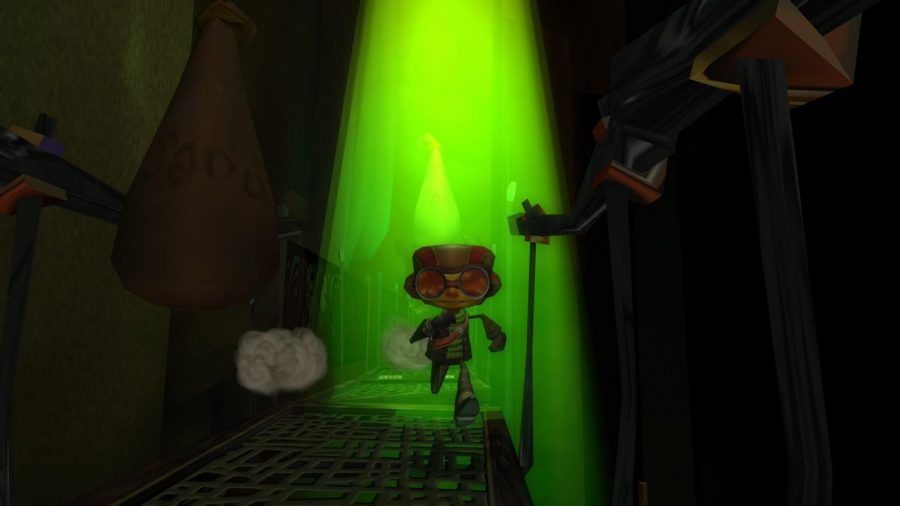‘Psychonauts’ gets jiggy with it
A character from “Psychonauts” runs down a walkway. The game was released April 19, 2005.
Sep 13, 2021
It’s a rarity to enter a game with mild expectations based solely on word of mouth and leave genuinely astounded at the quality on display, more so when after 15 years.
“Psychonauts” is a 3D platformer game developed by Double Fine Productions, the studio headed by Lucasarts icon Tim Schafer, the vision behind point-and-click classics for PC like “Day of the Tentacle” and “Full Throttle.” It was first released in 2005, but in classic cult classic fashion, bombed horribly and nearly killed the studio. But again in cult classic fashion, Microsoft bought the studio and rights, producing a new sequel more than a decade later.
“Psychonauts” follows a very comedic, crude story of Razputin (Raz), a young boy sporting psychic powers, who runs away from home to try to sneak into a summer camp for similarly-powered kids to become a “Psychonaut,” a super-spy with psychic abilities. The summer camp shenanigans soon fade to reveal a sinister plot occurring backstage, that only he can stop.
The plot is pure Tim Burton silliness with a pinch of creepy art design, with the kids and psychic-enemies you encounter looking straight out of a Burton film, elevated by a shockingly packed cast of voice actors across the industry, with “Invader Zim” lead Richard Steven Horvitz voicing Raz. The story has its silly fart-humor but has its memorable gags worth a good chuckle.
The meat and potatoes of the game is the psychic trips, going into the minds of other people and completing levels based on their mental problems. This is where ”Psychonauts” truly shines.
Get The Daily Illini in your inbox!
One moment, you’ll be in a living room watching a ghost of Napoleon Bonaparte play a board game of war with a mentally insane man claiming to be the descendant of Napoleon, only to dive into said board game and play in an ongoing battlefield. The next moment will have you in the head of a paranoid suburbanite whose warped view of his neighborhood is a surveillance, sleeper-agent-ridden nightmare. Then, in just the same hour, you’ll be in a traditional color-shaded depiction of Spain’s running of the bulls, where a bullied high schooler has warped it into a metaphor for his uncontrollable rage.
It’s a game where the story is in the level design itself. That Spain level is about a kid’s repressed memories of high school, and the school is literally repressed underground in the level’s sewers. The paranoid suburbia is full of road workers and telephone wire repairmen in black suits and shades, poorly disguising themselves to always watch your every move. It’s a shockingly clever and creative level design, with so much hand-drawn art and modeling, so many creative environments and unique animations to all its many moving parts. It’s so much going on, all on a 2001 Xbox console.
It’s a flawed classic to put it best. “Psychonauts’” biggest flaw is its incredibly drawn-out introduction. The first three levels are all tutorial in design, and the game really doesn’t get going till about three hours in (to the 10 hours game). Worse, and not a sin to it as much as the games of the time, “Psychonauts” is very vague. While you do have a magic strip of bacon that can give you hints, the game has several moments where it steers away from the plot, roadblocking you till you get unspecified abilities and tools. One segment had me leave the level and grind for 800 arrowheads, a process of using a metal detector tool in a field for upwards of 10 minutes – not long but not desired at all.
Overall, if you are hearing the rave reviews for the sequel, or are interested in a good, funny platformer romp with a bit more meat to it, “Psychonauts” can provide a good time more than a decade later. Just make sure to keep your head on straight.
“Psychonauts” is available on PC, PlayStation 2, Xbox and Xbox 360.






